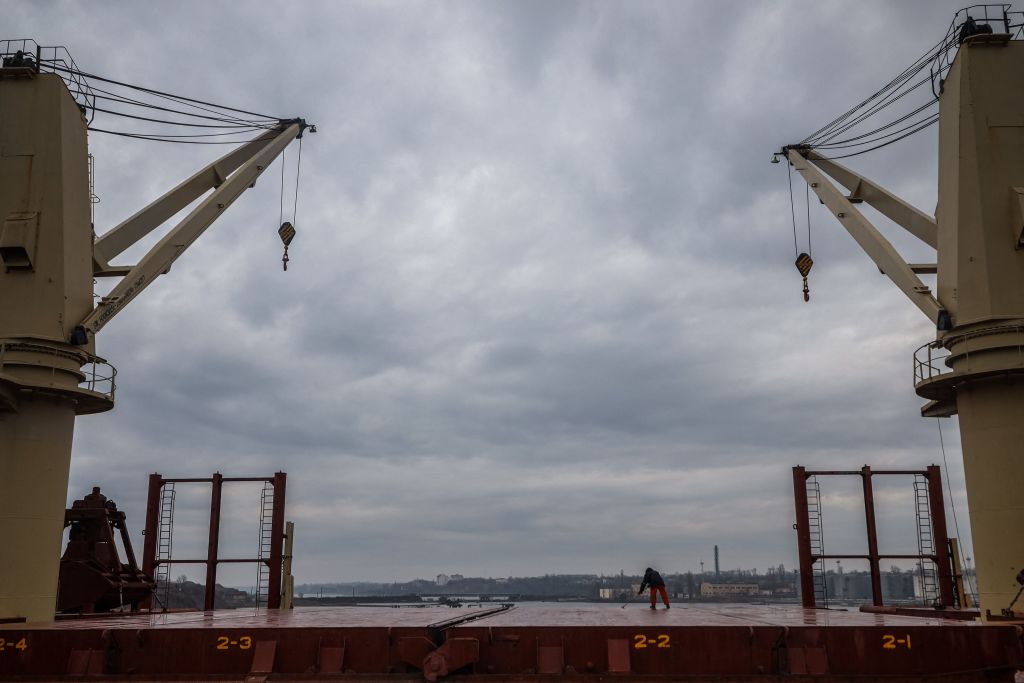Conflict Looms as Landlocked Nations Feel Pinch
ADF STAFF
Landlocked countries in Africa pay higher prices for goods and often struggle to meet the needs of citizens. This situation fuels resentment and can lead to cross-border conflict.
Kenyan Prime Cabinet Secretary and Cabinet Secretary for Foreign and Diaspora Affairs Musalia Mudavadi believes something must be done to address the concerns of the 378 million people living in 16 landlocked countries in Africa.
In a recent speech at the United States International University, Nairobi, Mudavadi called for the creation of a working group to address the unique challenges faced by these nations.
“The geo-strategic constraints that landlocked countries face are increasingly becoming major drivers of conflicts on the continent,” said Mudavadi.
The issue came to the forefront after an announcement by Ethiopia that it had negotiated a deal to gain access to the port in Somalia’s breakaway state of Somaliland in exchange for recognition of the region’s independence. That agreement angered Somali officials who view Somaliland as an integral part of Somalia. Ethiopian Prime Minister Abiy Ahmed has also made threatening statements about regaining access to the Red Sea through neighboring Eritrea.
In a televised speech Abiy said a lack of port access “prevents Ethiopia from holding the place it ought to have.” He warned that if the country did not get sea access, “it’s a matter of time, we will fight.”
East Africa has acutely felt the importance of sea commerce since late last year when shipping companies began avoiding the Red Sea due to attacks from Houthi rebels based in Yemen. The cascading impact of the ship diversions disrupted supply chains in many countries. Mudavadi said continentwide action is needed so African countries are not left exposed to the vagaries of international shipping.
“In the shadow of global conflicts, let us not forget the silent suffering of our own people in Africa,” Mudavadi said. “When the cost of shipping, freight insurance, and goods goes up due to the Red Sea crisis, the impact is possibly double for the landlocked states that rely on the coastal countries.”
Landlocked countries face an array of challenges including border bureaucracy that slows trade, poor road and rail infrastructure, and a lack of connectivity to undersea fiber-optic cables needed for fast internet connections.
A global study by the World Bank in 2014 found that landlocked countries spend $3,204 to export a container of cargo, compared with $1,268 for transit countries and $3,884 to import a container, compared to $1,434 for transit countries.
The economic impact is clear. Of the 16 landlocked countries in Africa, 13 are categorized by the United Nations as “least developed.” The level of development in landlocked countries is about 20% lower than in coastal countries, the U.N. found.
In 2014, the U.N. launched a 10-year Vienna Plan of Action to promote sustainable development in landlocked developing countries. The plan calls for investment in transportation infrastructure, regional integration and removing barriers to trade.
Still, say experts, there is much work left to be done to bridge the land-sea divide.
“The problems for landlocked countries that emanate from the logistics, which affects directly the people, also relate to the dependencies of these countries on neighboring countries,” said U.N. Conference on Trade and Development Senior Economist Mussie Delelegn in the Weekly Tradecast podcast. “It affects not only normal tradeable goods, but also goods that are vital for the survival of people … There is a huge amount of work that is necessary to address those gaps.”


Comments are closed.